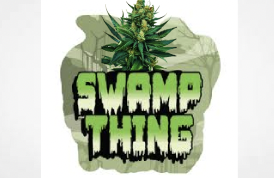Authored By: William F. McDevitt, Esq.
“They’ll come at you sideways. It’s how they think.”
“Shepherd Derrial Book”(Ron Glass), Serenity, 2005
The marijuana industry is still processing United States Attorney General Jeff Sessions’s recent decision to repeal the Cole Memo, which had directed federal prosecutors to refrain from prosecuting marijuana-related businesses that operated in accordance with a facilitative state law. The effect of Sessions’s policy change is presently unclear because, as of this date, the December 2014 Rohrabacher-Blumenauer amendment precludes the Department of Justice (DOJ) from spending any of its budget for the prosecution of entities that are lawfully participating in a state marijuana program. But, the Rohrabacher-Blumenauer amendment is part of continued, partisan, budgetary conflict, currently scheduled to resume in early February.
Under the recent policy change, United States Attorneys have been given additional discretion to prosecute marijuana businesses, even when they are operated in accordance with state law But no one knows what resources the DOJ will be permitted to direct to those prosecutions. Direct prosecution of state-legal cannabis businesses may be a cost-intensive endeavor. On January 4, 2018, Pennsylvania Governor Tom Wolf indicated that the Commonwealth will oppose efforts to prosecute businesses operating in accordance with the Pennsylvania Medical Marijuana Act. Pennsylvania is one of 29 states (and the District of Columbia) that has legalized medical or recreational cannabis, meaning there are as many as 30 state attorneys general who have an interest to opposing lawsuits that may directly impact legalized marijuana. Add to that the lawyers who may be hired to defend the estimated $10 billion legal marijuana industry, and prosecution becomes a potentially costly proposition.
But, what about less-expensive, indirect enforcement? There are several indirect or “sideways” avenues that the DOJ might explore to undermine medical and recreational marijuana:
- Firearms. Under the Gun Control Act of 1968, persons who regularly use marijuana cannot legally own firearms. Pennsylvania has pledged not to release the names of patients holding medical marijuana ID Cards to federal authorities. But gun owners must disclose their marijuana use when reregistering their firearms or face charges for making misstatements to federal authorities. Historically, prosecution of firearm offenses has rarely occurred in the absence of another crime, but that could change.
- Physician licensing. The federal Drug Enforcement Administration (DEA) issues prescribing licenses to physicians. Without a DEA license, a physician cannot prescribe prescription medicines. A physician who prescribes medical cannabis could potentially face difficulty renewing her federal license.Pennsylvania has sought to insulate doctors by having physicians certify that a patient suffers from one of 17 recognized conditions and allowing the dispensaries to counsel clients and suggest products. However, Pennsylvania’s law also allows certifying physicians to “recommend” cannabis products and amounts. Federal authorities may argue that “recommendations” by certifying physicians equates to “prescribing” cannabis. Although Pennsylvania does not permit a certifying physician to work for a dispensary, each dispensary must employ one physician to oversee counseling and dispensing. A physician employed by a licensed dispensary may face more difficulty in maintaining federal licensure based on their role in the actual delivery of medical marijuana directly to patients. A dispensing physician may retain a state-issued license to practice medicine, but be precluded under federal law from prescribing medications.
- Real property forfeiture. Federal law allows the government to confiscate real estate that is used to advance drug sales and distribution. The Justice Department may seek to pressure landlords of state-legal cannabis businesses to terminate leases or face federal forfeiture actions.
We do not yet know how or if the federal government will seek to curtail state-legal marijuana businesses. There is no guarantee how government enforcement will proceed.
About the Author
William F. McDevitt is a partner in the Philadelphia office of national law firm Wilson Elser, where he is a member of the firm’s Cannabis Law practice. He can be reached at [email protected].

















